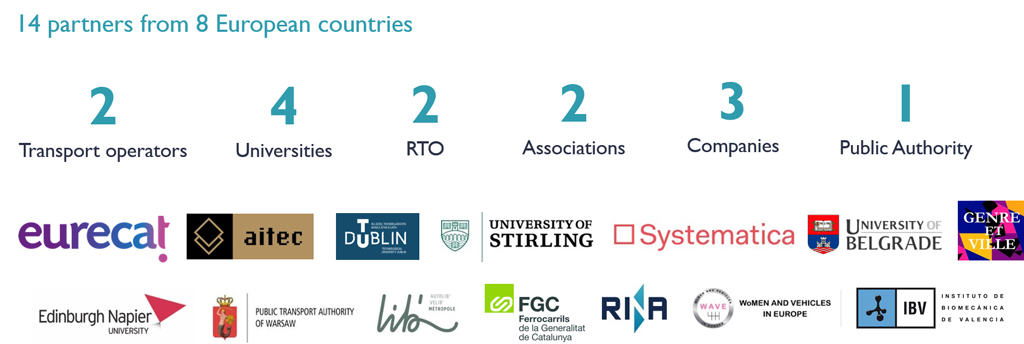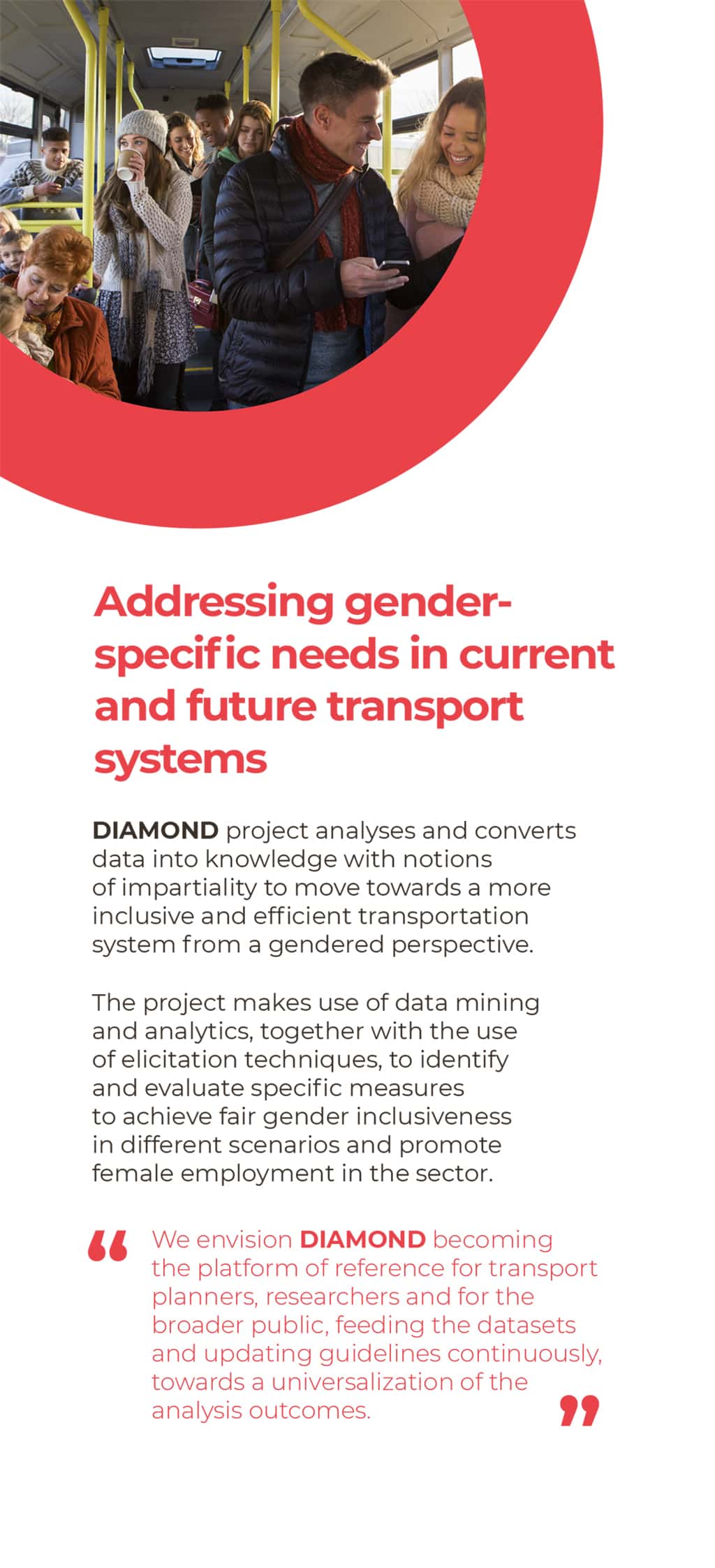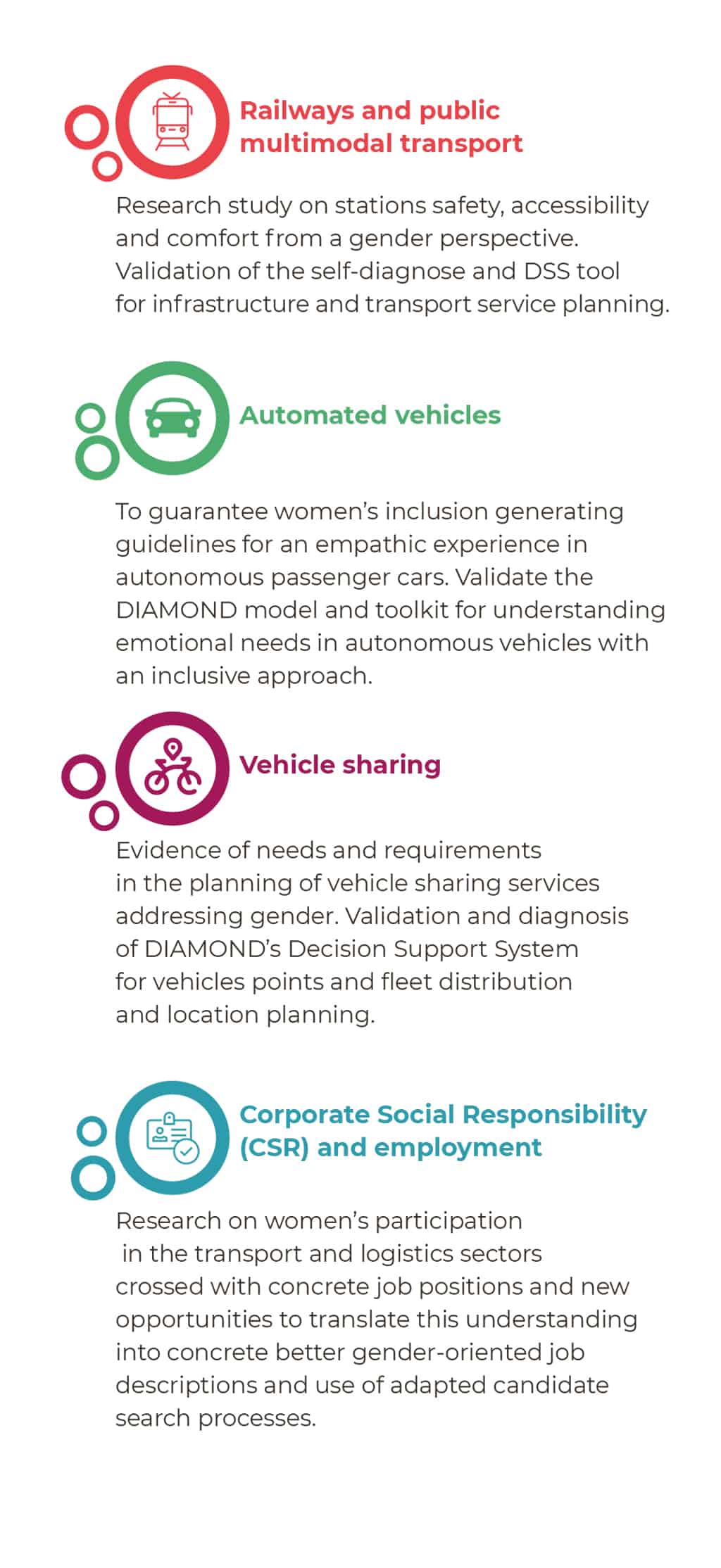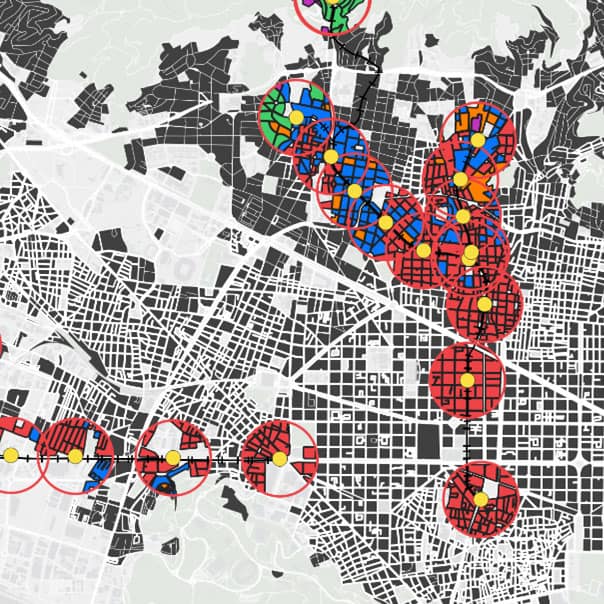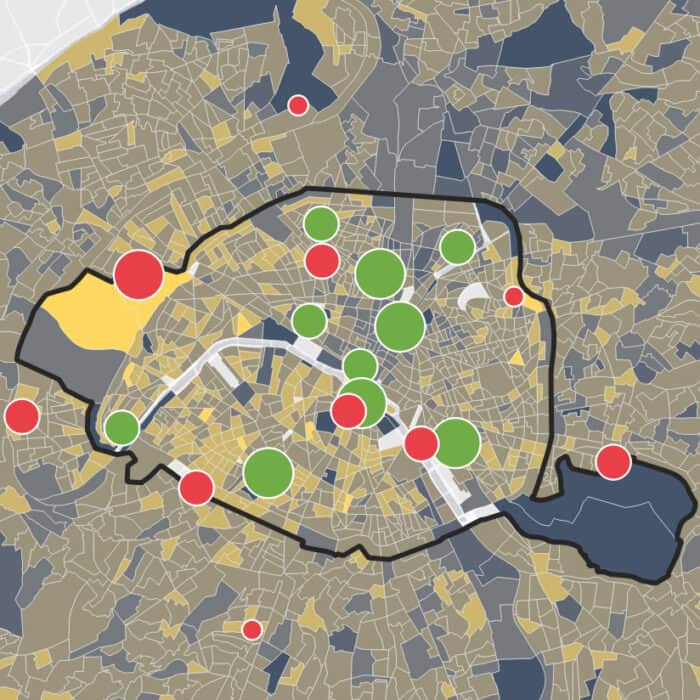Revealing fair data and actionable
knowledge from data to
support women’s inclusion
in transport systems
The rising demand of public transport services and infrastructure requires the design of effective and sustainable mobility strategies to improve the quality of life. Following this trend, one of the most promising transport planning approaches is based on the integration of multidisciplinary knowledge and skills derived from urban studies, social sciences and computer science. Thanks to the recent development of advanced ICT-Information and Communication Technologies, and because of the increasingly available digital data sources, Big Data is becoming a valuable tool for decision makers by unveiling hidden mobility patterns within cities.
Following these developments, Systematica joined the H2020 research project DIAMOND, funded by the European Union. The main objective of the project is to turn data from different sources into actionable knowledge for addressing gender-specific needs in current and future transport systems.
The project is a collaboration between 8 European Countries and includes 14 partners ranging from academic research groups, private companies and associations involved in transport and gender issues. Following the recent development of international policies and best practices (e.g., Women in Transport – EU Platform for Change; APEC Women in Transportation), the project aims to combat the unequal opportunities for women in the transport sector as both users and employees.
Within the DIAMOND Project, Systematica is leading innovative research activities aimed at collecting large-scale disaggregated data to support the design of gender-equitable and inclusive transport systems. The project focuses on four case studies related to: public transport infrastructure, autonomous vehicles, bicycles sharing and corporate social responsibility and employment. Data is selected, sorted and filtered by combining several datasets and indicators: territorial, socio-demographic and mobility geospatial datasets, universal design indicators from observations, user-generated data from social media and end-users needs and expectations collected through focus groups and surveys.
The Project is ongoing, however, in later stages data analytics will be based on Neural Networks, Machine Learning techniques and GIS-Geographic Information Systems. It will be aimed at defining a hierarchical model for the design parameters influencing the inclusion of women, while combatting the intrinsic barriers in public transport infrastructure, and supporting the development of an interoperable and user-friendly toolbox for fairness, self-diagnosis and decision support in transport planning.
Data Model
Representation of DIAMOND data model for a multi- disciplinarity analysis on women needs, requirements and expectations in relation to transport systems.
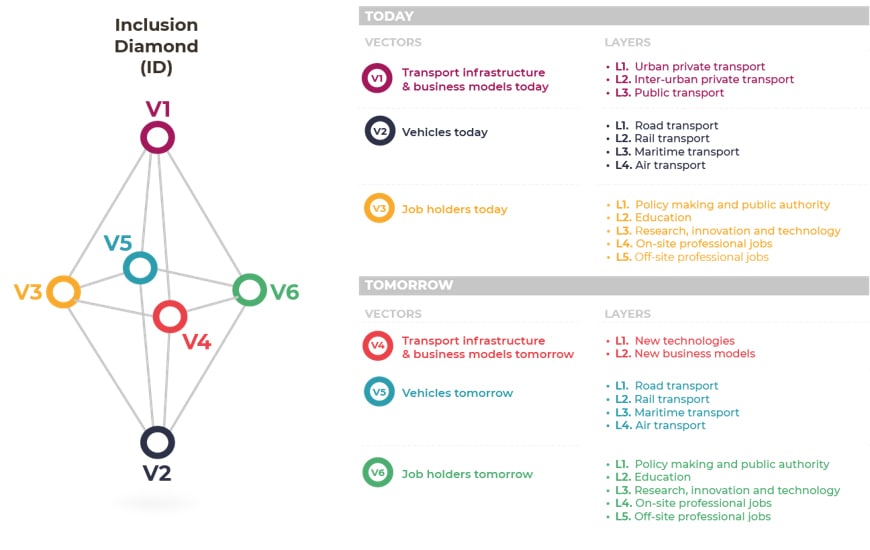
White Paper – Addressing gender-specific needs in Europe’s current and future transport systems
This White Paper considers key issues and actions for moving towards a fair, inclusive, and women participated mobility and transport system. Within this context, the document will attempt to recommend concrete measures to enhance women’s participation as users and employees to support the design of transport modes and access of infrastructure able to be more inclusive and informed also by women’s need. The White Paper is informed by the main findings and recommendations of the EU Horizon 2020 funded DIAMOND project and other related projects.
TOOLKIT4FAIRNESS
ASSESSING FAIRNESS & INCLUSIVITY IN TRANSPORT
The Toolkit4Fairness is an easy-to-use web application that offers mobility operators and MaaS services a resource to evaluate their level of inclusiveness with respect to different socio-demographic groups, with a particular focus on women. Based on the results of the evaluation, they obtain insights and recommendations that can guide them towards the improvement of their service.
